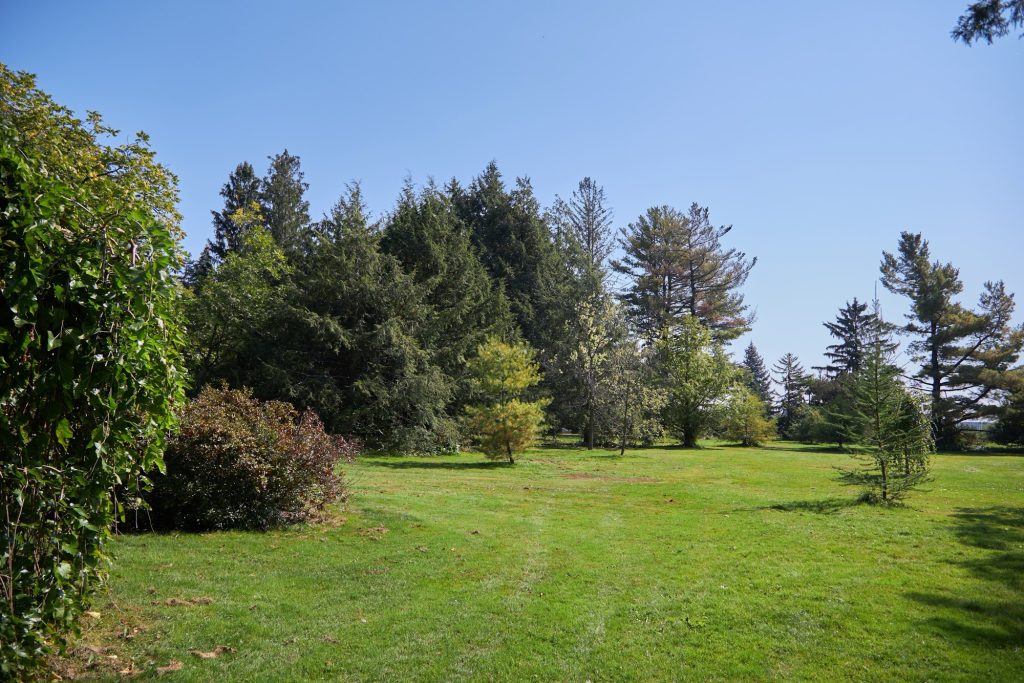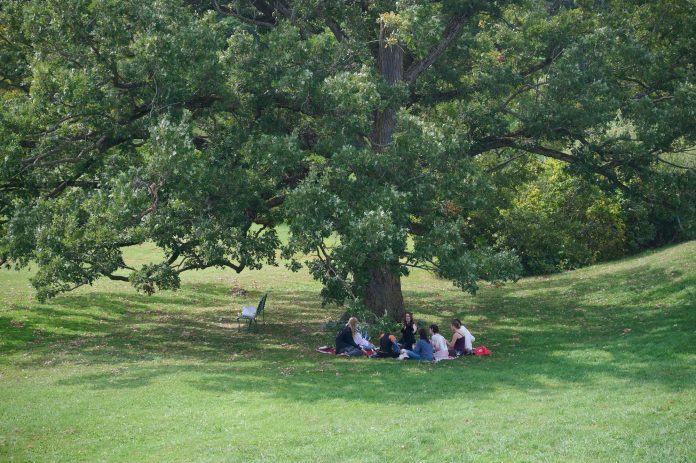Each tree in the Dominion Arboretum has a story and a purpose.
Yet when most people walk through the vast greenspace, they don’t stop to think about how the beauty they are enjoying was made. That is why the volunteer awareness group Friends of the Central Experimental Farm decided to write a new book titled Pathways to the Trees.
“We had a tree book in the past but we don’t have one now. Many of the trees in the first book are now deceased so it was time to redo it with a slightly different approach,” said co-author Eric Jones. “We wanted to showcase why it’s such a special place with all these specimens of trees. A lot of people come here to walk their dog or enjoy the benefits of the green space, but don’t know the significance of all the trees.”
The Arboretum’s landscape is constantly changing. Through various wind storms, trees have toppled. In 2010 the tree-killing emerald ash borer was found on the property. The invasive beetle pest that originated in eastern Asia was first discovered in Ottawa near St. Laurent Boulevard in 2008. Almost all of the tree specimens on Ash Lane had to be cut down a few years later. Some were more than 80 years old.
Friends of the Farm was formed in 1988 with the mission to “preserve, protect, maintain and enhance the Dominion Arboretum, the Ornamental Gardens and other public areas of the Farm, in partnership with Agriculture and Agri-Food Canada.”

Richard Hinchcliff, who has been a photographer and researcher with Friends of the Farm for 20 years, said he hopes the book will carry on the legacy of William Saunders, a Canadian agriculturalist, entomologist and pharmacist.
“He had this incredible vision for the beauty of how a farm could look and operate,” said Hinchcliff. “He created the Central Experimental Farm as a model for Canadian settlers.”
Saunders was regarded as the leading authority on agriculture and horticulture in Canada. In 1885, the Canadian government asked the farmer from England to investigate the feasibility of implementing an experimental farm system similar to the model used in the United States. His recommendations were accepted and for the next 25 years, he led research into horticulture, forestry, and animal husbandry — including the creation of the Central Experimental Farm.
The book aims to introduce readers to the few 130-year-old trees which remain and the different species which have been planted since. Most of the original trees are located in what’s called the “circle area” which is near the Prince of Wales entrance.
“I hope that readers will learn a little bit about the diverse and interesting collection of trees that exist in the arboretum,” explained Hinchcliff. “I hope they do more than just enjoy it as a beautiful recreation space. It’s important we provide some practical information on the trees of Ottawa.”
Pathways to the Trees will officially be launched during an event at the farm’s Neatby Building from 3 to 5 p.m. on Oct. 16.

